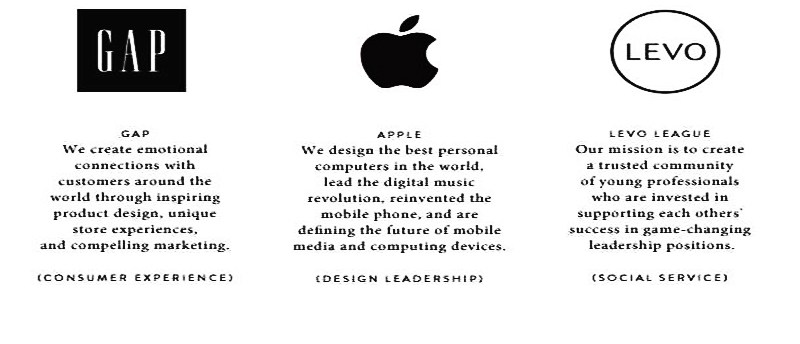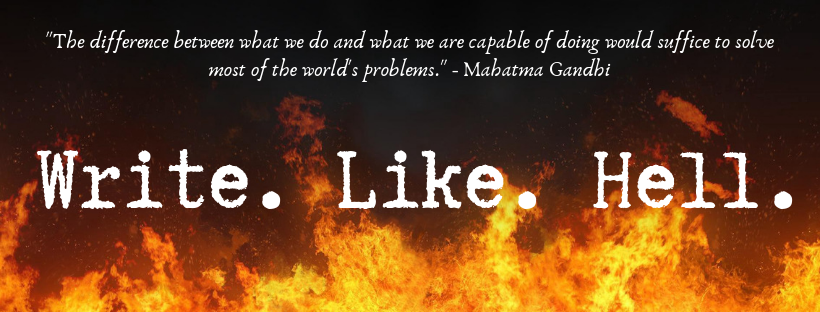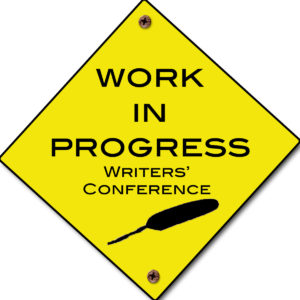Years ago, I wrote a bestselling book called 9 Habits of Highly Profitable Writing. I’m assaying a second edition now, and that process includes posting each of the habits here for you, for free.

Habit Seven: Know Why
Freelancing is hard work. You set your own hours, but you have to own your time and responsibilities so you can use those hours effectively. You’re your own boss, but you have to be effective at making yourself do stuff you don’t want to do.
Freelance writing is even harder.
Although the demand is out there, lots of people would love to write for a living. Lots of people who would otherwise be great clients think they know how to write. That means pushing against a market that wants to pay you less than you’re worth.
Add to that the uncertainty of making your nut every month, the lack of health benefits or paid vacation, the fact that working from home means not going to get cart food as often as you’d like…pretty soon you start to wonder why you signed up for this gig in the first place.
To make this work, you have to start and end with your reasons for taking on this life in the first place.
Starting Big: Your Mission Statement
You came to writing for a reason. It might have been simply because you like to write. It might have been because you can write from anywhere in the world, and go to work from anywhere with halfway decent Wi-Fi. It might be because of how much you hate wearing a suit to work, and Habit Two be damned. A mission statement can help you remember those reasons when things get tough.
A mission statement is a sentence or two that describes in detail why you do what you do. Most mission statements you see on corporate websites aren’t actually mission statements. They’re thinly veiled marketing ploys with no teeth, no heart and no meaning. For example:

Do not use them for inspiration here. They get nobody fired up, except maybe the person who got paid serious money to write that nonsense.
You don’t want marketing speak in your mission statement. You don’t need it, because this mission statement is just for you. It won’t work, because you’ll know if it’s a load of malarkey.
Instead, it should reflect exactly why you write for a living – or want to write for a living. Hopefully, it will use words that resonate with you so you keep wanting to write even on days when it’s hard.
For better or worse, here is mine:
To afford what my family needs and serve my personal values while working from home with abundant time for my wife, children, friends and interests.
There’s no marketing doublespeak in there. It’s just a list of the key things that motivate me to do what I do. Make enough money. Be a good dad, husband, and friend. Have time for my hobbies.
I love what I do, even the more challenging parts of it, but I do have rough days. When I have those rough days, I read and reread (sometimes re-reread and re-re-reread) my mission statement to keep me plugging until the days get easier again.
Zooming In
Your mission statement tells you why you write in general, but what about why you write the particular piece you’re procrastinating on today? That’s where zooming in to a project calendar helps. It’s a simple process, which itself becomes a habit as you make it part of your regular routine.
Step One: Your Five-Year Plan: Ask yourself what you want your writing career to look like in five years. How much money do you want to be making? How many books do you want in print? How about speaking gigs? Where do you want to travel? Is there a magazine you want to see your wok in? Write it all down. These are specific goals that you attach to the values you captured in your mission statement.
I set my last 5-year plan on my 45th birthday. By 50, I have some pretty aggressive ideas in mind. I’ll let you know about them in a whole post of their very own.

Step Two: Your Plan for the Year: Every six months, work out what you have to do over the next twelve months to keep yourself on track for your five-year plan. Even though you’re planning a full year, you do this every six months for two reasons.
- It makes sure you always have at least six months of solid plan ahead of you at all times, instead of starting each year with no lead time.
- It lets you adjust the nearest six months of your plan according to changes in circumstance that happened since the last time you set your 12-month goals.
This adds a level of granularity, creating the steps on the path you need to follow to reach your seemingly aggressive five-year plan. After a few iterations of this, though, you’ll find those five-year goals are easier to reach than you’d expected.
Step Three: Your Monthly and Weekly Tasks: Break up those yearly goals into 12 monthly sub goals, spread out to account for the rhythm of your year. For example, don’t commit to lots of work in the summer if you have young children.
Break up each month into 4 weekly plans. Those plans become daily agendas, thus creating your to-do list for the most important goals in your writing life.
Always plan your months in 4-week chunks, even though most months have a few “bonus days” at the end. Use those for catchup, or relaxation.
When you find yourself wondering why you’re writing yet another ad brochure for your local proctologist, you can trace that task all the way up the chain to your yearly and five-year plans. It will remind you that this is just one step on the path to the life you’ve promised yourself.
There’s not much that’s more inspiring than that.






 So I’ve been out of rotation for a few weeks, owing to my presence on the conference circuit. It’s ironic. I go out there and tell people all about the importance of blogging regularly and not missing a day of your social media presence…and while I’m doing that, what I’m not doing is any social media.
So I’ve been out of rotation for a few weeks, owing to my presence on the conference circuit. It’s ironic. I go out there and tell people all about the importance of blogging regularly and not missing a day of your social media presence…and while I’m doing that, what I’m not doing is any social media.

